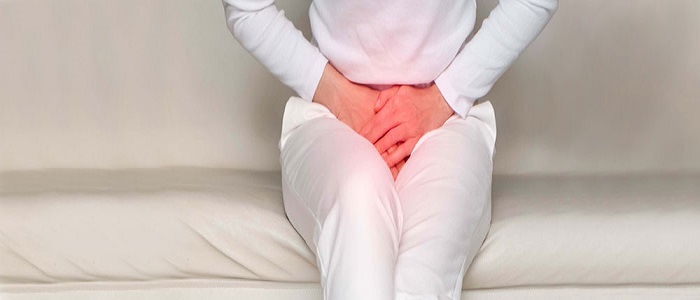
Interstitial Cystitis (Painful Bladder Syndrome)
The bladder, prostate, penis, kidneys, testicles, adrenal glands, and other important body parts are present in the Belly area. Like the heart and Brain, our Urological area also needs proper treatment.
Many people are stunned and shocked to find out that urology covers a large variety of conditions for each man and woman. In addition to treating the male system, urologists treat diseases and conditions within the kidneys, bladder, and tract – all of which have an effect on each gender at all stages of life.
Urinary System Functions:
When your bladder is full, you need to pass urine. If your bladder is functioning properly, then it can hold the urine for some time.
When you need to pass the urine, your brain cells send signals to your bladder. And then the bladder muscles squeeze to pass the urine out through the urethra. To help the urethra, closed sphincter mussels help so that the urine doesn’t leak.

Symptoms of painful bladder/interstitial cystitis
Painful bladder condition indications might fluctuate and contrast because of elements like a feminine cycle, stress, sexual movement, and sitting for long timeframes. Essential symptoms of agonizing bladder disorder include:
Pelvic pain (intense or constant)
Gentle or extreme pressing factor or uneasiness in the bladder
Continuous desire to pee (up to multiple times every day in outrageous cases)
Difficult sex.
IC symptoms might flare up and even vanish for timeframes. Any individual with pain or inconvenience in the bladder and pelvic area, or who needs to utilize the washroom with sporadic recurrence, should visit a urologist for determination and appropriate treatment.
Treatment of Painful Bladder Syndrome

Symptoms of PBS are like any other urinary issues. That’s why an e urologist will first try to know the possibility of different conditions, like urinary tract infections(UTI), bladder cancer, and sexually trained illness. Analysis can include:
- Clinical history assessment
- Pelvic test
- Keeping a bladder journal
- Pee test
- Cystoscopy to see the covering of the bladder
- Potassium affectability test, as individuals with IC, are delicate to potassium.
There is no remedy for PRBS and treatment is regularly difficult since each case presents in varying manners. Diet and lifestyle changes, active recuperation, medicine, nerve incitement, and medical procedure are all therapy choices that might give help to difficult bladder conditions.
Diet and lifestyle changes to control PBS
Certain individuals track down that specific food varieties or drinks can trigger bladder disturbance and removing dietary improvements can assist with controlling symptoms of PBS. Food varieties and drinks known to cause flare-ups in certain patients include:
- Caffeine (coffee, tea)
- Liquor
- Chocolate
- Citrus juices
- Carbonated refreshments
- Food varieties and beverages with artificial sugars
- Fiery food sources and hot peppers.
An elimination diet includes eliminating each food in turn from one’s eating routine and keeping a food journal to recognize food sources that might trigger distress in an individual with Painful Bladder Syndrome. There are incredible varieties among various patients with regards to what specific food varieties trigger their bladder torment.
Another lifestyle change feasible for patients with PBS/IC is bladder training. This can include preparing oneself to pee at explicit occasions to diminish urinary frequency.
Physical therapy
A physical therapist might assist with alleviating indications that emerge due to excessively delicate muscles or pelvic floor brokenness (PFD). Numerous urinary and sexual-related symptoms of PBS can be brought about by PFD. Physical therapy can unwind and expand fixed muscles and release trigger places of pain. An actual advisor can likewise assess the stance of an individual with IC, which can intensify symptoms because of pelvic floor problems.

Meditation
Over-the-counter medication, for example, ibuprofen and naproxen ought to further develop symptoms of minor pains. Different prescriptions, for example, tricyclic antidepressants help in loosening up the bladder muscle and relieving the pain symptoms. The antihistamine hydroxyzine pamoate can help in reducing urinary frequency. Meds likewise can be set straightforwardly into the bladder to decrease side effects.
Nerve incitement (InterStim)
The strategies utilize electrical heartbeats to calm pain by expanding the bloodstream to the bladder. Sacral nerve incitement works similarly as a pacemaker accomplishes for the heart, as it invigorates the bladder muscles with a meagre wire set near the bladder nerves. If the symptoms decline during the underlying incitement system, an extremely durable wire might be precisely positioned for super durable use.
Bladder surgery
Bladder surgery is a sparingly utilized therapy choice for excruciating bladder conditions because eliminating the bladder (a cystectomy) regularly doesn’t completely mitigate pain and can even prompt different inconveniences. Those generally appropriate for a medical procedure incorporate individuals with serious pain or the people who can just hold a small amount of pee, or if different therapies have failed.
